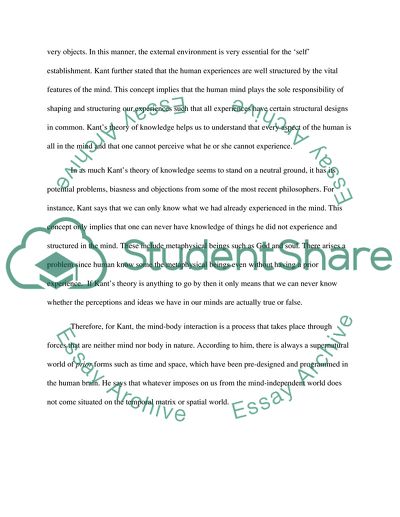Retrieved from https://studentshare.org/philosophy/1682399-summary-of-kantaposs-theory-of-knowledge-and-how-it-contributes-to-our-understanding-of-the-mind-body-problem
https://studentshare.org/philosophy/1682399-summary-of-kantaposs-theory-of-knowledge-and-how-it-contributes-to-our-understanding-of-the-mind-body-problem.


